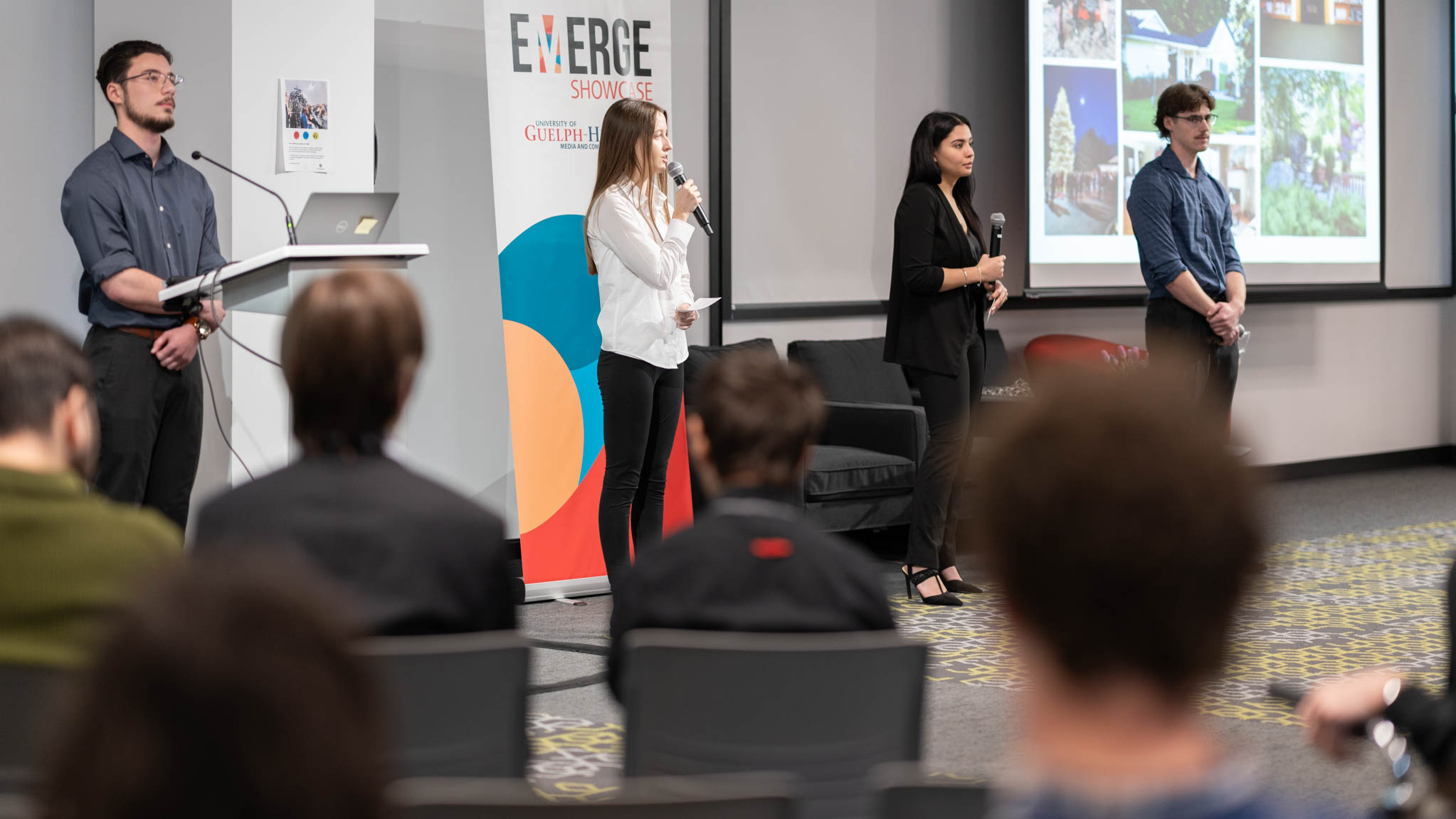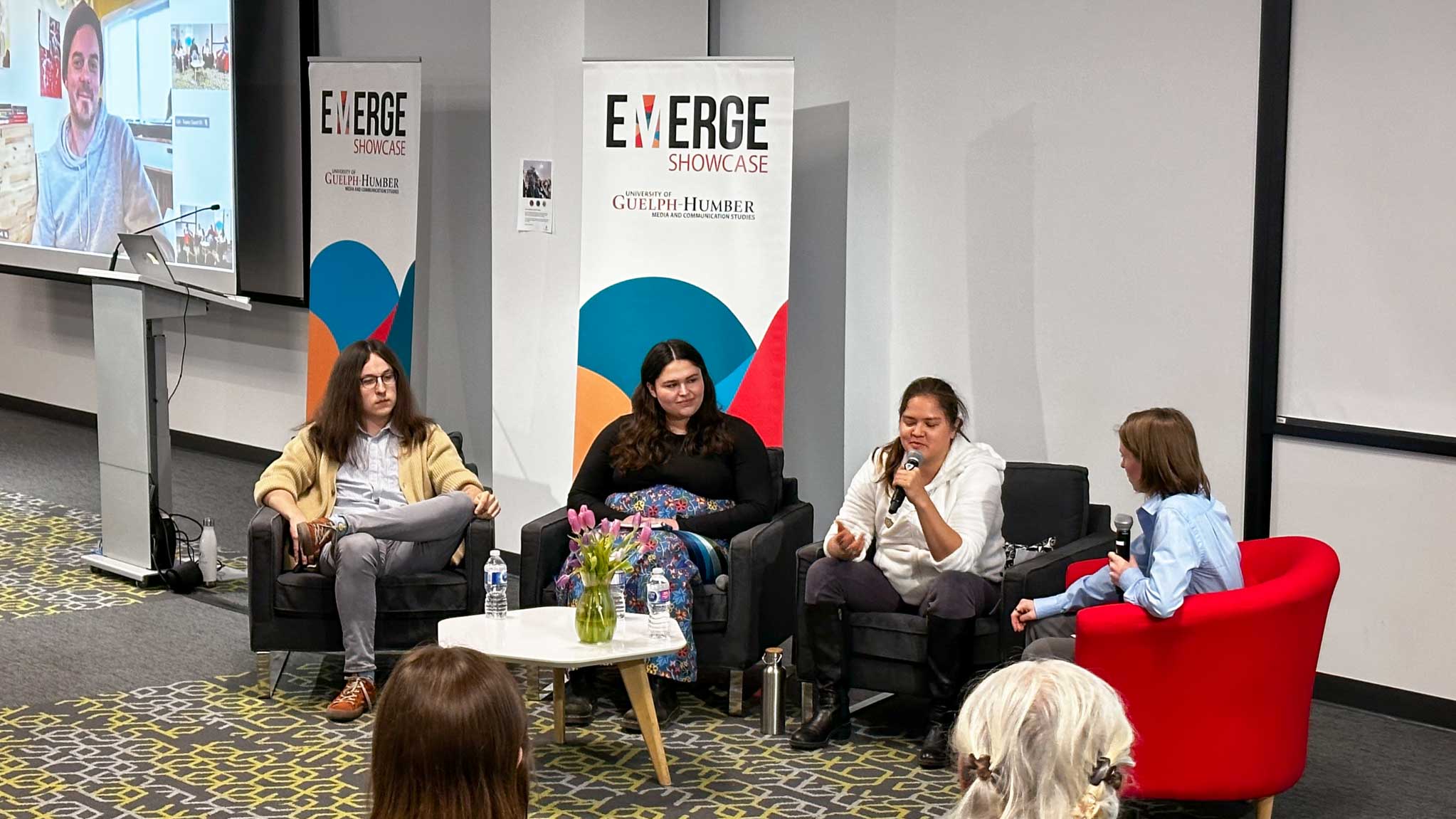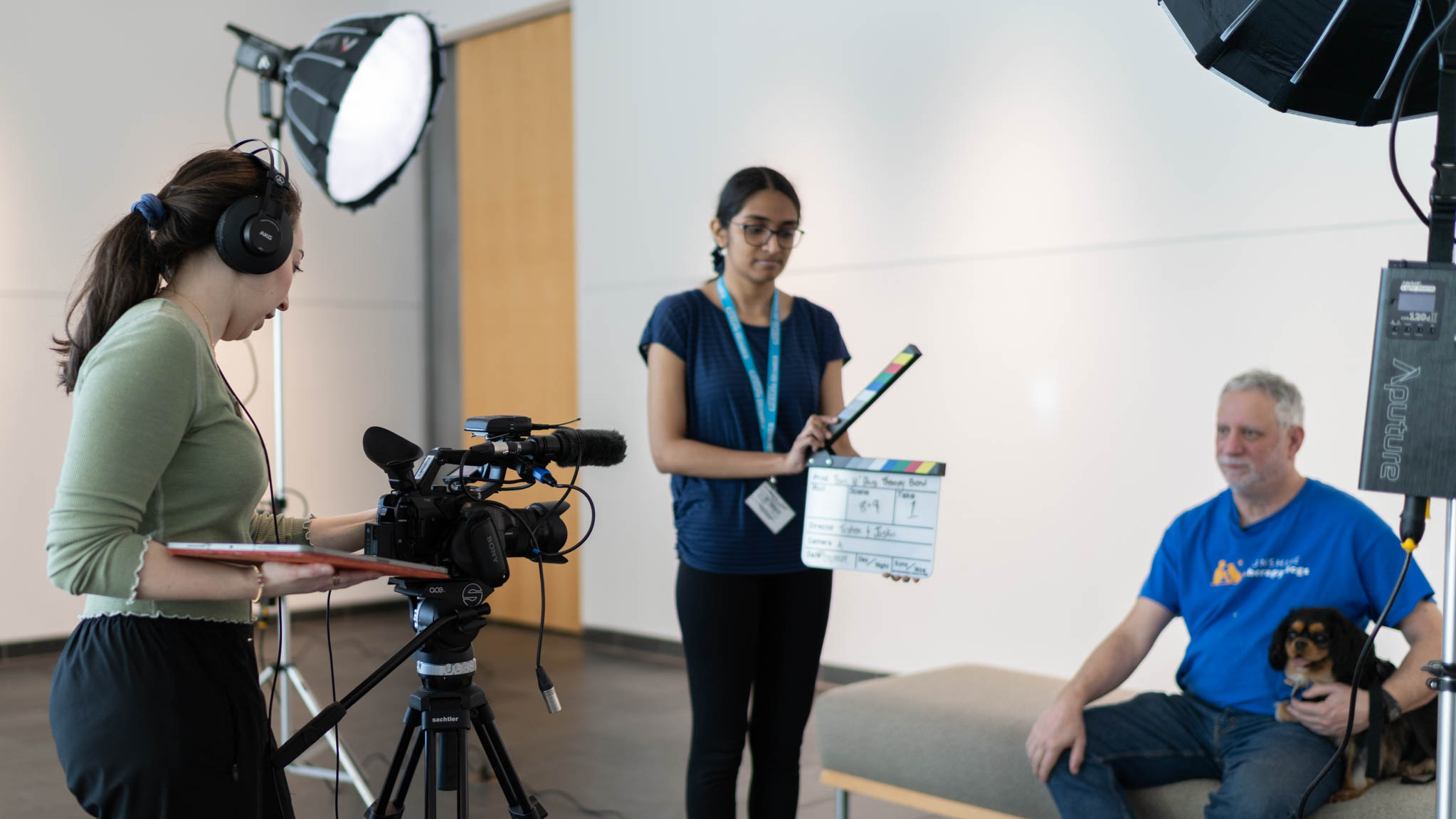- Future Students
- Current Students
- Faculty
- Staff
- Alumni
- Others
Emerge Showcase 2024: Media and Communication Studies Students Shine with Real-World Projects
A suggestion from a colleague at Adam Adachi’s part-time job took him and three classmates through an assignment that eclipsed the usual requirements of a capstone project and instead, taught them more about facing end of life.
The team - Adachi, Madison Myernich-Bookless, Luzianne Dagher and Ryan Holdsworth - met the head of an Oakville hospice through that colleague and reimagined the marketing and visual communications for Ian Anderson House producing a new logo and several videos for it.
“I grew a lot, as cheesy as that sounds. I think I grew a lot as a professional and an individual,” Adachi said.
Their work is part of the Media and Communication Studies (MCS) program’s annual capstone extravaganza, Emerge Showcase 2024.
“I had to drop my pride and my decision making and I had to work with my team, my professor and my client and do what was best for the project and not what I wanted to do and that was I think a good learning experience,” explained Adachi.

On March 25 and March 26 in the Barrett Centre for Technology Innovation, graduating MCS students shared 25 presentations, including communications and visual content plans produced for real-world clients; in-depth analyses for major corporations; and two undergraduate research theses including a panel called, "Decolonizing Journalism."
For that, fourth-year MCS student, Kate Carveth’s panel included writer Alexandra Shimo, whose co-authored book “Up Ghost River: A Chief’s Journey through the Turbulent Waters of Native History” was a finalist for the Governor General’s Award.
Carveth wanted to cover questions pertaining to better covering of news and current affairs from Indigenous communities.
“If you think oh my god, the TRC ended in 2015 why do we still have all these issues? If you look at how media has changed since 2015 there has been a lot of progress,” Shimo explained to the audience. “Decolonization still has a ways to go. But what happened with the TRC was seismic and it did have profound impact on newsrooms across the country.”
Carveth asked the panel for advice for non-Indigenous reporters. Panelist Owen Thompson, a METRadio journalist and MCS alum said, “When it comes to decolonizing journalism specifically, a large part of it to me is about taking our preconceived notions of Indigenous issues and then being able to filter it through an Indigenous lens and take that lens into consideration when producing stories.”
Other panelists included GH Justice student and Indigenous Programming Assistant at the Humber office of Indigenous Education and Engagement, Kaitlyn McLeod, and via video conference, Northwest BC Narwhal reporter, Matt Simmons.

The Emerge concept is the brainchild of Kathy Ullyott, MCS Program Head.
“My goal for Emerge is for students to walk away saying "Wow! I can't believe that I did that”,” Ullyott said. “As a capstone project, the goal of the Media Practices course is to encourage students to focus the skills and knowledge they've acquired over three years on a real-world project that will be a key element of their portfolios going forward. At the same time, it presents a "stretch" goal - I want students to feel pushed outside of their comfort zones so that at the end of it, they are proud of what they've done and confident launching their careers.”
The Paws ‘n’ Hearts team worked with Sunshine Therapy Dogs, a charity that connects volunteers, their pets and people in need of mental health support. Alan Harman launched the business after he saw one of his children struggle with stress and anxiety in post-secondary school.
As part of the team’s promotional campaign, Taliyah Fisher took portraits of the therapy dogs when the team brought the group into the University of Guelph-Humber for visits with students.

“It gave me a really clear idea of understanding of what it meant to really capture a moment and allow it tell the story,” Fisher-Lewin said of the photos which were posted on the client's social media and website.
Working with clients helps most students understand corporate issues, struggles and goals “and bring that to life through visual communications,” she added. Sunshine Therapy Dogs has a clear focus on its mandate and delivers on that, “and I have to come in and use the talents that I have to really portray it and focus in on what they’re looking for and what they want.”
The Ian Anderson House videos, which brought some fellow classmates and audience members to tears, included testimonials from families whose loved ones spent their last days at the home, including a mother who lost her husband in his forties.
"To communicate the stories of impact from people who have spent time there, I think videos were the best way we could help them. I like to think that we communicated those stories in an emotionally resonant way," Adachi said.

